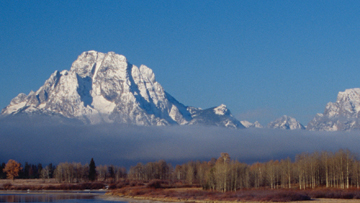On that morning in July, I woke up really early. Perhaps it was the sound of the Big Thompson River outside my window, although that same rushing sound invariably put me to sleep as I lay in bed in the evening. As I lay in my bed, looking up at the wooden beams of the cabin, the heavy smell of the pines outside the open window reminded me that today was going to be super.
Dad had taken my cousin, Neal, and me into the mountains a little over a week ago, so that by now I was getting used to the altitude. I had been told that kids who weren’t used to the altitude often got mountain sickness. I wasn’t quite sure what mountain sickness was, but it sounded pretty bad; I sure didn’t want to get sick with it.
So I was happy that nothing bad had happened. Every day that went by was better than the day before. No mountain sickness. Over the last few days, Dad drove us around Rocky Mountain National Park so we could look at the sights. There were elk, plenty of ...
